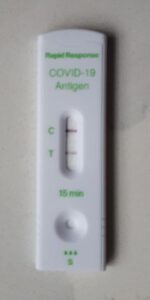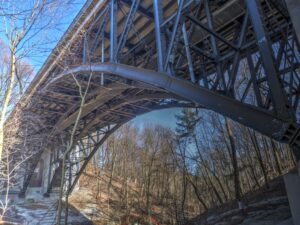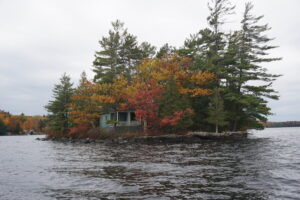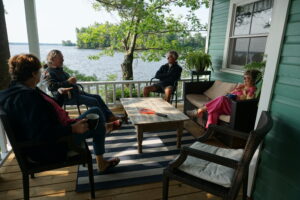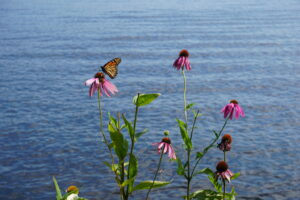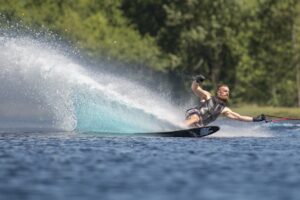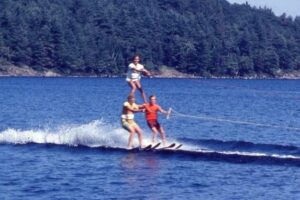April 10: Barb says: “it’s going to be an interesting night. All sorts of people in the line. And feathers too.” Barb is a volunteer with me at the Out of the Cold program, and when I go out to open the door for dinner service I see one of the regulars – a tall, handsome first-nations guy – with his upper cheeks and eyes painted green and black, his lower face covered with some sort of jaw bone (perhaps off a deer), and feathers in a large head-dress. We nod and fist-bump as he goes in, apparently dealing with some sort of alcohol or mental health delusion.
A week later he shows up minus the make-up and paraphernalia, and we spend 10 minutes or so talking about his aspirations. He says he was a gang banger and that, when things go wrong, he reverts to being the big strong guy and that gets him into trouble. He wants to change but he is not sure how to go about it. After a while, he’s ready to go and asks for a hug. As we awkwardly grip shoulders, it occurs to me that this guy has probably not had a meaningful hug – an expression of understanding or affection – for a very long time. I’m amused by the slightly horrified looks of the folks passing by on the street…..
I’ve gotten to know a number of the “guests” like him during the 20 weeks that we are open, and have established a good rapport with some of the other volunteers and agency folk. I find it all really rewarding and uplifting. Sad sometimes too.
We close the Out of the Cold program this week and I will not see the familiar faces until October. I lose touch with those I have seen every week, and the hopeful – sometime hopeless – stories that I have been privileged to hear in the last few months. Some time ago, I wrote about David (who has terminal cancer) and his friend James who is caring for him during his last days. James has been able to have David admitted to Kensington Health where he has been visited by his sisters from out of town. This is a long and touching story and it’s unlikely that I will hear the final chapter until October.
To be sure, there are small success stories: people who get off the street; people who get clean and sober, maybe have a line on a job. The simple desire to change their life. These moments are tremendously rewarding, and I look forward to contributing to those moments in some small way next year. Perhaps simply opening the door to a new chapter.
* * * *
When I was a boy, my Father was drinking heavily. In my naivety, I imagined that he might end up as one of those older men stumbling around on Jarvis Street clutching a paper bag. Perhaps for that reason, this song has always resonated with me and – if the mood and moment are right – it can still bring a tear to my eye.
